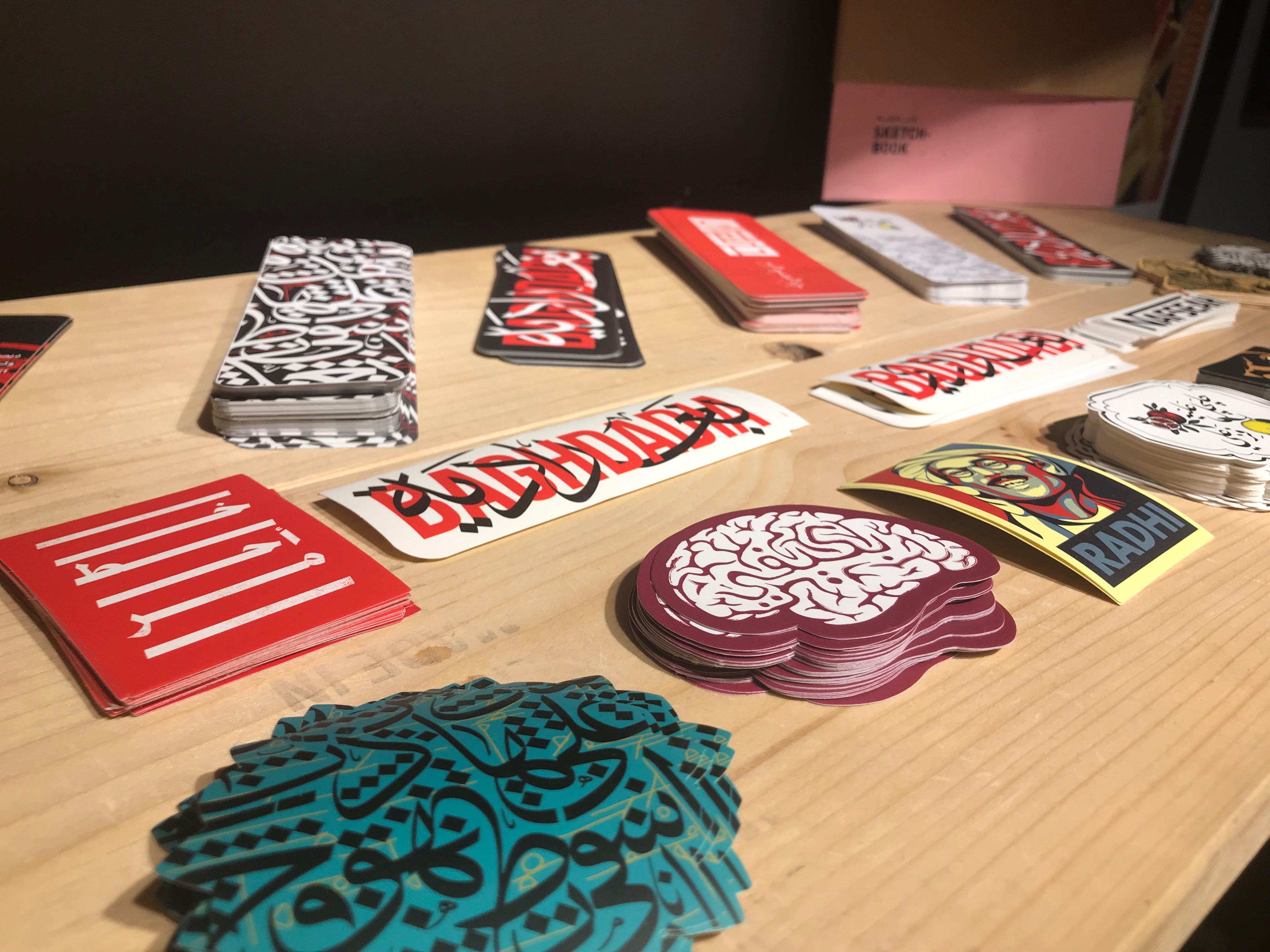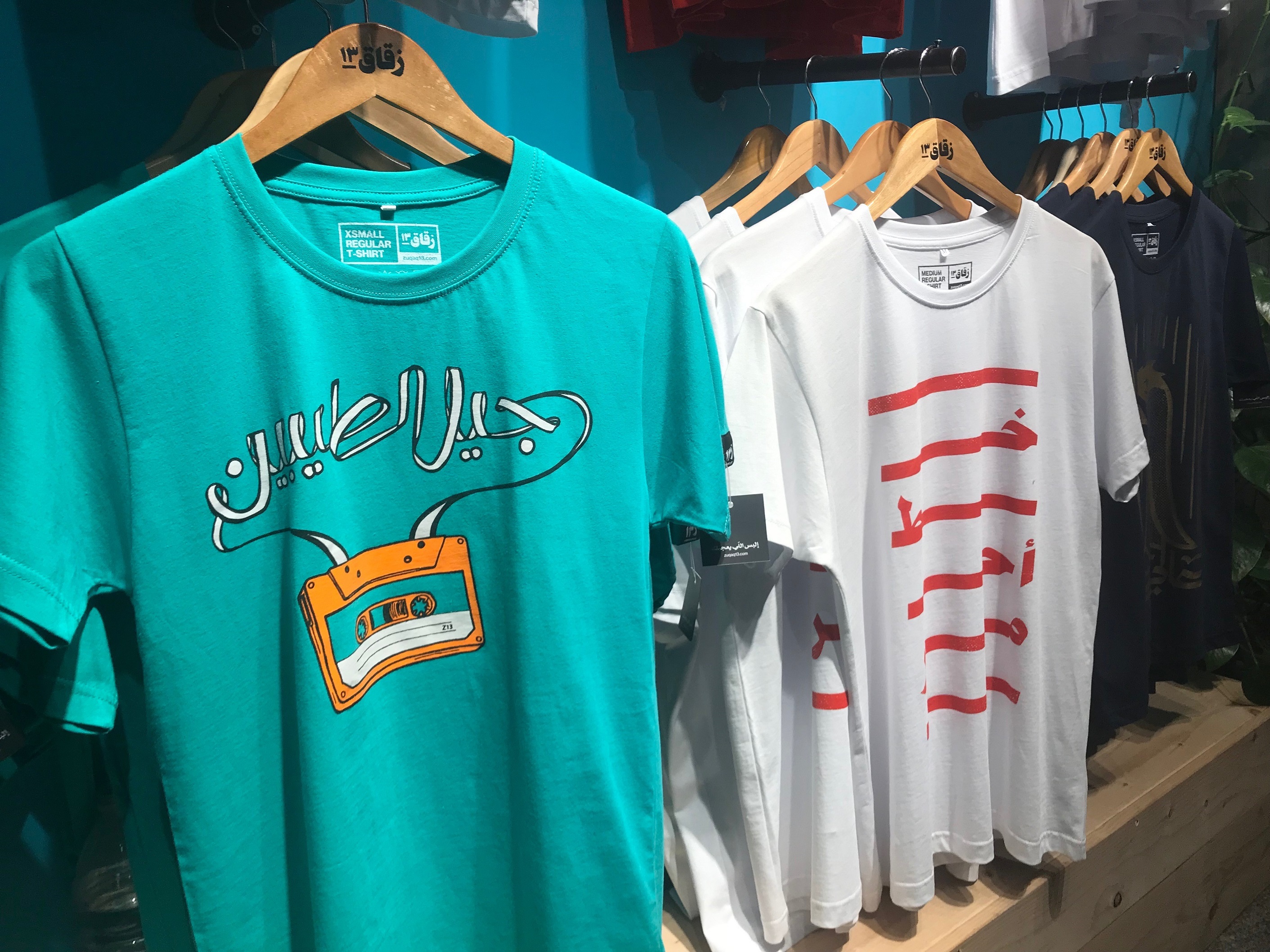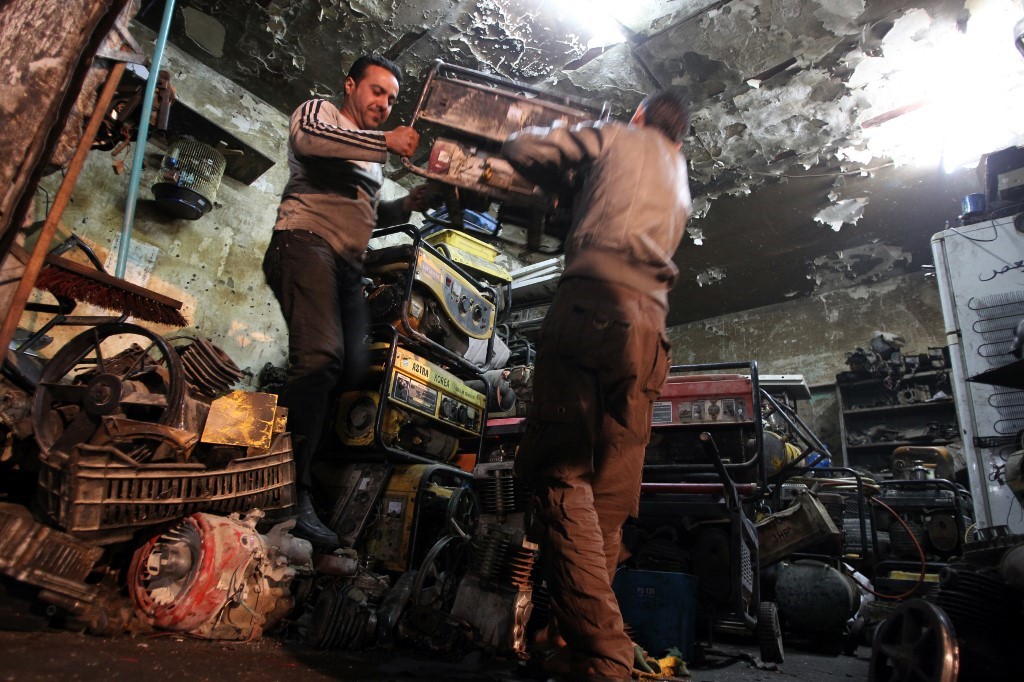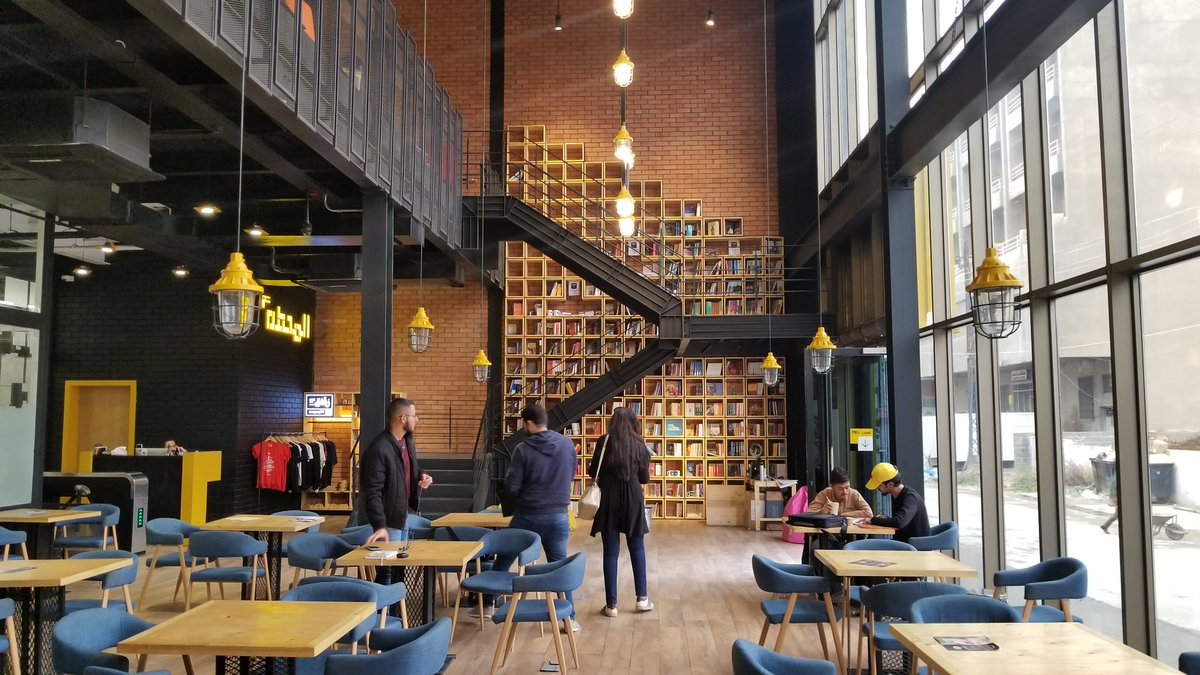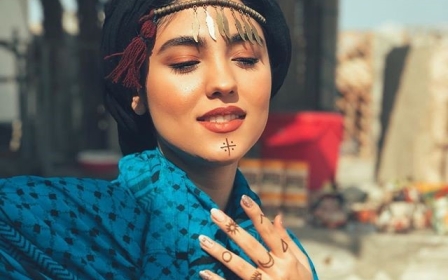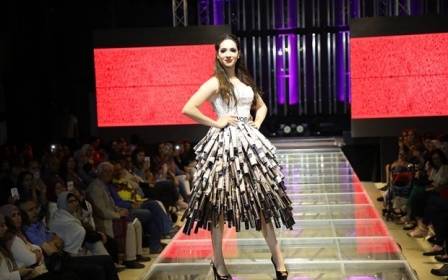Reclaiming 'Baghdadi': Iraq’s first streetwear brand captures youth spirit
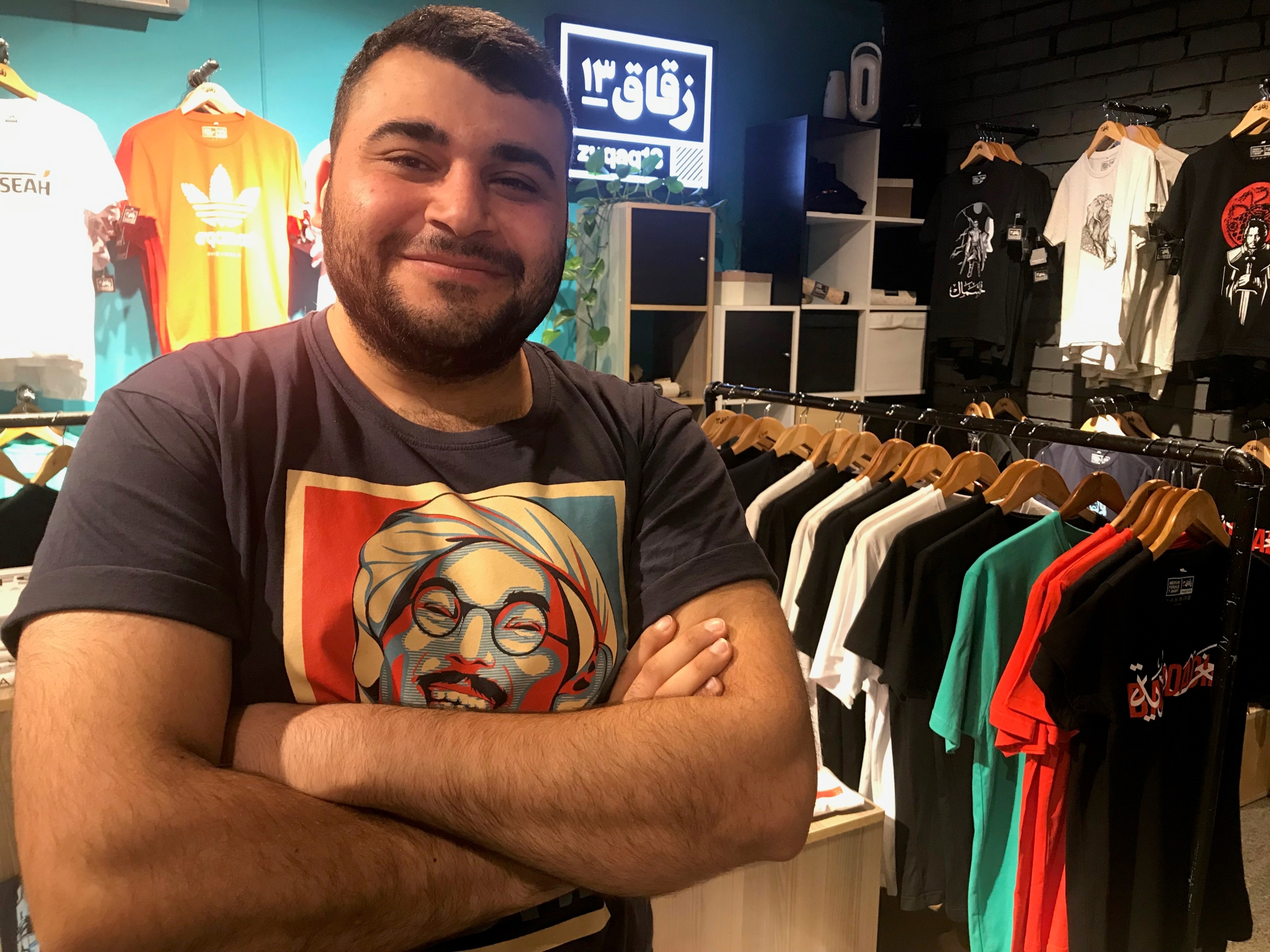
In Baghdad’s upmarket Mansour district, Hussein Abul Ma’ali stares intently at one of his favourite T-shirt designs, bearing the word “Baghdadi,” and explains what on Earth it might have to do with counter-terrorism.
“The word ‘Baghdadi’ should reflect the beauty of Baghdad and Iraqi and Baghdadi people,” he says defiantly.
In recent years, the word referring to a resident of the Iraqi capital has become all too synonymous with Abu Bakr al-Baghdadi, the nom de guerre of the so-called Islamic State group’s elusive leader (who is in fact from Samarra, a city 130km away).
Through street clothes and graphic design, Abul Ma’ali is reclaiming it.
New MEE newsletter: Jerusalem Dispatch
Sign up to get the latest insights and analysis on Israel-Palestine, alongside Turkey Unpacked and other MEE newsletters
'The word Baghdadi is not and should not be related to terrorism, to this character. We tried to change this concept and challenge it'
- Hussein Abul Ma’ali
“The word is not and should not be related to terrorism, to this character,” the 29-year-old entrepreneur explains. “We tried to change this concept and challenge it.”
The Baghdadi motif is among dozens of witty and stylish designs by Zuqaq13, one of Iraq’s first streetwear brands, whose name means “Alleyway 13” in Arabic.
Abul Ma’ali founded the business in 2017 after being inspired by streetwear brands in Jordan and Lebanon.
“I was just thinking, ‘Why don’t we have this in Iraq?’ he tells MEE at his Mansour district shop, the first of four outlets selling Zuqaq13 products in Iraq. “So I spent four or five years just dreaming of having such a project. Then I realised, ‘Nobody is doing this. I need to do it.’”
A former employee at the advertising company J Walter Thompson (now Wunderman Thompson), Abul Ma’ali used his connections in Iraq’s design community to build a network. He now works with around 10 artists who spawn ideas for Zuqaq13’s range of T-shirts, hoodies, and stationery.
'I do what I want'
Alongside the popular “Baghdadi” motif, a green T-shirt bears a cassette with a squiggle of tape reel spelling out the words in Arabic, "jeel al-tayyebeen” – “the good generation”. On a mug and a sticker, the folds of a human brain spell out the word, “bkeefi” – Iraqi slang for “I do what I want.”
Among the designers whose works adorn Zuqaq13 garments is Faisal al-Sudani, 26, the brainchild of the “Baghdadi” motif. He moved back to Iraq this year after more than a decade in the Netherlands.
“When I was in the Netherlands, many people asked me if the design referred to Abu Bakr al-Baghdadi,” he told MEE. “But it just means someone from Baghdad.”
Al-Sudani searches through old magazines and books for inspiration.
“I hope my designs show the beauty of Arabic calligraphy and how it’s so adaptable and can be used almost in every design.”
'We are speaking the language of the street. We are speaking the subject of the moment'
- Faisal al-Sudani, designer
Since its launch, Zuqaq13 has grown a network of loyal customers and its designs can be seen in trendy coffee shops in downtown Baghdad.
“I think they are great, and smart in marketing their business,” said Ahmad Mousa, a Baghdad-based journalist and the proud owner of four Zuqaq13 T-shirts. “They often come up with new design ideas that correspond to current trends in Iraq and trends and jokes from the past, whether it’s TV, songs or old sayings.”
Abul Ma’ali is trying to focus the collection’s designs on Iraqi pop culture, hinting at contemporary issues to which young Iraqis can relate.
“At first Zuqaq was representing Iraqi heritage and culture, and in a way, we captured the past in our designs. So we tried to reintroduce the design into something else,” he explains.
“We are not trapped in those days. We are speaking the language of the street. We are speaking the subject of the moment, not just talking about the past and how cool it was, with the songs and everything, no – we’re trying to have another subject.”
Business challenges
Being a Baghdadi entrepreneur has its challenges. Iraq’s private sector is poorly developed and the country ranks 171st out of 190 nations on the World Bank’s “Ease of Doing Business” index.
Alongside political risk, an “overbearing presence of the public sector dominated by inefficient state-owned enterprises” forms an “imposing obstacle” to private investment in Iraq, according to a separate 2018 World Bank report on job creation in Iraq.
That means start-ups like Abul Ma’ali’s can have a tough time finding their feet. The entrepreneur has faced many dead ends trying to set up an online shop to send orders internationally, for example.
“Since day one of Zuqaq13, we’ve been trying to establish this online shipping solution, an e-commerce website,” Abul Ma’ali says, looking rather stressed just thinking about the problem. “But the financial infrastructure and the courier services in Iraq are too complex, too expensive, and it won’t allow us to grow that part specifically.”
Iraq’s erratic electricity supply is another obstacle for private sector entrepreneurs. Baghdad sees power cuts of up to 12 hours a day, with individuals and businesses relying on expensive generators the rest of the time.
"To be honest, we had a few setbacks in the supply of electricity to our shops and we are actually paying extra money,” he adds. “So the simplest points directly affect the businesses working in Baghdad and around Iraq in general.”
That said, Zuqaq13 is growing, and plans are currently underway to bring the whole printing process into Iraq (garments are currently printed in Jordan).
Abul Ma’ali now employs five staff members, including Bissan Naimi, originally from Aleppo in Syria. She works as an assistant at the Mansour shop, which is decorated with pale wood fittings, turquoise walls and stickers disguising the air-conditioning unit.
“I wanted to do something cultural, with a link to graphic design, and this job helps me communicate with people,” the 21-year-old told MEE. “I like anything that feeds the soul.”
New generation
While there are huge hurdles for entrepreneurs in Iraq, Zuqaq13 is among a new generation of motivated entrepreneurs in the country. Others include Layan Alqudsi, who founded Daraj – “steps” in Arabic – to open bookshop concessions in popular cafes and restaurants.
Baghdad’s entrepreneurs gather at The Station, Iraq’s first co-working space. The building – in a cannot-miss-it shade of sunflower yellow – is equipped with quiet desk space available for rent, a cafe, and meeting rooms, as well as the all-important Daraj and Zuqaq13 concessions.
At the other end of the country, "Maslawi" entrepreneurs are being helped back on their feet by the recent opening of Mosul’s first co-working space.
The city suffered widespread destruction during the military campaign to oust Islamic State group militants. But its young residents – namely a team of five called Mosul Space – are now determined to start afresh by helping entrepreneurs and freelance workers with the physical space, skills and workshops needed to help grow their businesses.
Back in Baghdad, Zuqaq13 bridges a divide between cultural production and Iraq's small but determined start-up industry.
“People used to tell me, ‘you dropped a well-paid career into just having a new project that might be very risky’,” Abul Ma’ali says. “But I really believe in this.”
This article is available in French on Middle East Eye French edition.
Middle East Eye delivers independent and unrivalled coverage and analysis of the Middle East, North Africa and beyond. To learn more about republishing this content and the associated fees, please fill out this form. More about MEE can be found here.


